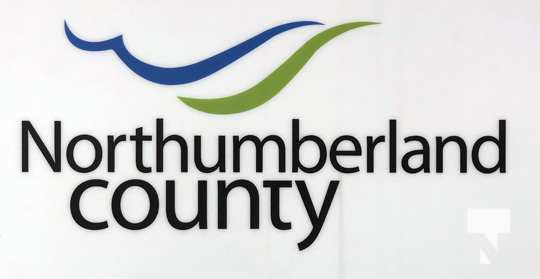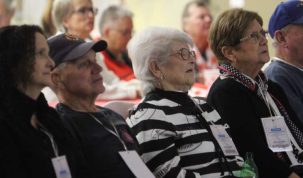By Cecilia Nasmith/Today’s Northumberland
The Ontario Human Rights Commission has written to Cobourg Mayor Lucas Cleveland to reiterate the importance of shelter availability in a time of homelessness, and to express concerns about the town’s new Emergency Care Establishment Bylaw that went into effect prior to an agreement being finalized on the operations of a prospective emergency shelter at 310 Division St.
And because a copy went to Warden Brian Ostrander, the letter was on the agenda at Wednesday’s meeting of county council’s Social Services committee.
“The ORHC is concerned that Cobourg’s Emergency Care Establishment Bylaw may impose unnecessary restrictions on emergency and transitional housing that could have a discriminatory impact on people protected under the Ontario Human Rights Code,” the letter said.
The correspondence referred to its Room For Everyone study of 2013 that set out an overview of human-rights responsibilities in licensing housing and set out guidelines on the kind of health and safety standards that could legitimately be regulated.
“Rules and regulations should be based on objective evidence that they are necessary to address legitimate health and safety concerns, and not stereotypes or discriminatory attitudes towards those living there. Rules and requirements should also be practical, narrowly tailored and manageable,” it said.
A licensing bylaw that prevents or delays a facility from opening, it continued, reduces the availability of housing and creates a human-rights concern.
The bylaw went into effect before the finishing touches could be put on an operational agreement to which the Town of Cobourg, the County of Northumberland and Transition House would have been parties.
The committee accepted the letter for information purposes without comment.
A last-minute addition to their agenda was the letter to the Human Rights Commission from the town solicitor. It was also received for information purposes without comment.
Letter
March 28, 2024
Mayor Lucas Cleveland
Town of Cobourg
55 King Street West
Cobourg, Ontario
K9A 2M2
Dear Mayor Cleveland and Members of Council:
Re: Emergency Care Establishment By-law (000-2024)
The Ontario Human Rights Commission (OHRC) recently learned that on February 28, 2024, Cobourg’s Town Council passed a by-law to license and regulate Emergency Care Establishments, which will be implemented on March 28, 2024.
Ontario is facing a homelessness crisis that is leading to profound and devastating impacts on communities across Ontario. The OHRC understands that Cobourg, like other communities, is on the front lines of this crisis and is seeking to address the need to ensure safe and sustainable housing options for its community members, including people in need of transitional or emergency housing. The OHRC recognizes that this obligation extends to all municipalities across Ontario. As a guide in fulfilling obligations under the Code, the OHRC released a statement on the need to
protect and uphold the rights of people experiencing homelessness and living in temporary shelters and encampments.
The OHRC appreciates the challenge municipalities face on the ground in addressing intersecting needs related to housing and homelessness, mental health and substance use disorder, and poverty. The OHRC is concerned that Cobourg’s Emergency Care Establishment By-law may impose unnecessary restrictions on emergency and transitional housing that could have a discriminatory impact on people protected under the Ontario Human Rights Code (Code). Certain people protected under the Code are more likely to require emergency and transitional housing.
Those include people living with disabilities, including mental health disabilities, substance use disorder and complex trauma, people who receive public assistance, Indigenous and racialized people, LGBTQ2+ people, youth, and women and children fleeing domestic violence.
Over the years, the OHRC has monitored and reviewed various municipal approaches to regulating private and public housing. The goal is to ensure that practices regulating emergency shelters and transitional housing do not create barriers to housing vulnerable people. This includes “people zoning” and by-laws that indirectly make it more difficult to establish or operate such housing.
As part of its monitoring, in 2013, the OHRC released Room for everyone: Human rights and rental housing licensing. The OHRC examined how licensing provisions in municipal by-laws can affect the availability of housing for certain people seeking protection under the Code. This publication gives an overview of human rights responsibilities in licensing housing and makes
recommendations to help municipalities protect everyone’s human rights.
Licensing by-laws, agreements or other mechanisms that regulate housing by requiring operators to follow specific standards may contain provisions relating to health and safety standards. However, rules and requirements should be based on objective evidence that they are necessary to address legitimate health and safety concerns, and not stereotypes or discriminatory attitudes towards those living there. Rules and requirements should also be practical, narrowly tailored, and manageable.
Licensing by-laws or agreements which prevent or delay a facility from opening, cause a facility to close or create barriers for individuals accessing the shelter reduce the availability of housing and lead to homelessness, raising human rights concerns. As a result, municipalities have seen an increasing number of people relying on outdoor encampments for shelter. Courts have recognized a “right to shelter,” allowing people to shelter in encampments with insufficient low-barrier and accessible shelter beds to meet the diverse needs of the homeless population in a community.
The OHRC encourages all levels of government to work cooperatively with each other and with shelter operators to determine how best to fulfil the urgent local need for housing and shelter services while addressing legitimate health and safety concerns.
This approach will help municipalities meet their legal obligations under the Code, Ontario’s Provincial Policy Statement on land use planning and the human right to adequate housing under federal and international law.
Policies and programs designed to address the needs of people experiencing homelessness should be grounded in human rights-based approaches and delivered with respect and compassion. The OHRC created a tool, the Human Rights Based Approach Framework (HRBA Framework), to help those designing policies and programs meet those standards. As the HRBA Framework outlines, a human rights-based approach requires consulting with affected stakeholders, including community agencies and current clients of transitional and emergency housing or encampment residents.
The HRBA Framework can be a valuable tool to help identify essential steps in ensuring all required stakeholders inform the policy or program development process and avoid or mitigate human rights impacts.
The OHRC recognizes the importance of this matter to the Town of Cobourg and hopes that this letter and the information provided here help address this crisis. It welcomes the opportunity to discuss and provide more information about the HRBA Framework and how it can be applied to policies and programs related to emergency and transitional housing.
Sincerely,
Patricia DeGuire
Chief Commissioner























